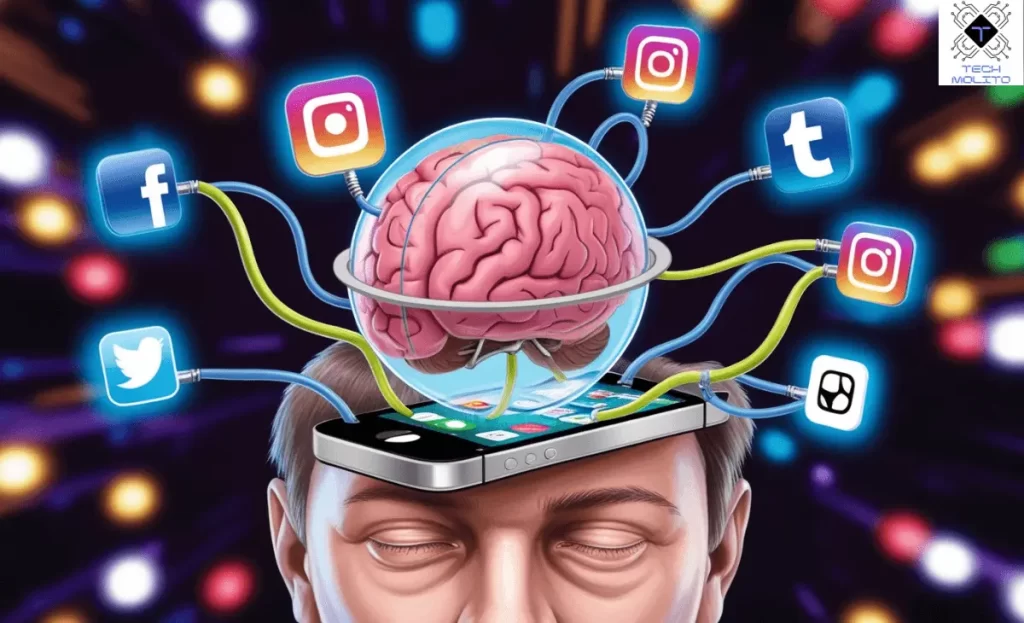Smartphones are everywhere. From checking emails to browsing social media, it feels like they’ve become an extension of our hands. But with their growing presence in our lives, one question looms large: Are smartphones affect our ability to focus?
In this article, we will explore how smartphones hijack our minds, their impact on productivity, and why taking control of our tech habits is crucial. As smartphones continue to play a significant role in our daily lives, understanding their impact on focus and productivity becomes crucial, especially for those pursuing careers in technology. For insights into the Best Tech Jobs of the Future, explore our related article here.
Smartphones Are Interrupting Our Focus
Every time you receive a notification, whether it’s a text, an email, or an app alert, it pulls your attention away from what you’re doing. This disruption, known as “task-switching,” is harmful to focus.
Why? Our brains aren’t wired to multitask effectively. Instead, we’re constantly shifting between tasks. Research shows that it takes about 23 minutes to refocus after an interruption. So, if you’re jumping between apps or responding to messages while working, you’re losing valuable time and attention.
Effects of Smartphones on Focus
Smartphones pull focus with alerts, pop-ups, and beeps. Switching tasks tires the mind and cuts down output. Focused work needs long, quiet periods, but phones often break that flow. Studies show people check their phones 96 times a day, or about once every 10 minutes. It’s clear why staying focused feels hard.
How It Hurts Productivity
Smartphones don’t just affect focus, they also harm productivity. Think about it: Every time you pick up your phone to check one thing, you often end up spending more time than planned.
What starts as a quick glance at an email can easily spiral into checking Instagram, Twitter, or the latest news. The result? You get less done in the same amount of time. And when work takes longer, stress levels rise.
Reasons Why Smartphones Reduce Productivity
Phone alerts break tasks and stop smooth work. Even quick glances at phones make it tough to stay on track. With too much information, the brain struggles to spot what matters. Phones also offer easy distractions that lead to delays and push tasks back.
A study from the University of California in 2015 found that it takes 25 minutes to get back to a task after being disturbed. When phones keep pulling focus, finishing work becomes much harder.

Taking Control of Your Smartphone Usage
So, how do we fight back against the grip smartphones have on our minds?
Set Boundaries for Notifications
Not all notifications need immediate attention. Customize your phone settings to receive only essential notifications, like work emails or messages from important contacts. For everything else, turn off alerts or set your phone to “Do Not Disturb” during work hours.
Use Time Management Apps
There are plenty of apps designed to help you limit smartphone use, like “Focus Booster” or “Rescue Time.” These apps can block distracting websites, limit your time on social media, and help you track where your time is going.
Designate Phone-Free Zones
Try setting up specific times or places where your phone is off-limits. For example, make your bedroom or dining area phone-free so you can focus on rest or meaningful conversations. During work hours, consider keeping your phone out of sight.
Practice the 20-Minute Rule
Instead of checking your phone every time it buzzes, challenge yourself to wait 20 minutes before responding. This will help break the cycle of immediate reactions and reduce interruptions.
Tips to Boost Focus and Productivity:
- Set “No Phone” Hours: Dedicate blocks of time for focused work without your phone.
- Batch Notifications: Only check emails and messages at set times during the day.
- Track Screen Time: Use tools to monitor how much time you’re spending on your phone.
The Science Behind Smartphone Addiction
The addictive nature of smartphones isn’t just a coincidence. Smartphones are designed to keep you engaged. They work on the principle of dopamine, a chemical in your brain that triggers pleasure.
Every time you receive a new message or a “like” on social media, your brain releases dopamine. This creates a feeling of reward, encouraging you to check your phone again and again. Over time, this behavior becomes a habit, one that’s hard to break.
FAQs
1. Why is it so hard to stop checking my phone?
Smartphones are built to keep you engaged. Every notification releases dopamine, making you feel good. This creates a reward loop that keeps you coming back for more.
2. Can smartphones permanently damage focus?
Smartphones don’t cause permanent damage to focus, but they do train your brain to expect constant stimulation. By setting boundaries, you can retrain your brain to concentrate for longer periods.
3. How can I reduce distractions without giving up my smartphone?
You don’t have to give up your phone to reduce distractions. Use apps that limit screen time, turn off unnecessary notifications, and designate phone-free zones during key tasks to boost focus.
Conclusion
Smartphones are powerful tools that offer convenience, connection, and information at your fingertips. But they also have a downside: They can hijack your focus and lower your productivity. The key is balance, using your smartphone responsibly and being aware of how it affects your mind.
By taking small, simple steps to manage your phone usage, you can regain control of your attention and productivity. Smartphones might have the power to distract, but with the right strategies, you can outsmart them and stay focused on what matters most.





